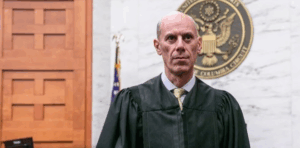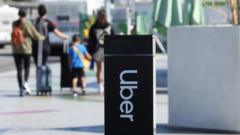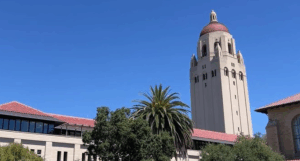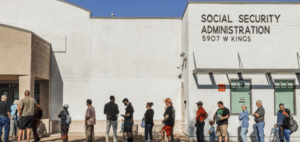The Supreme Court's 5-4 decision to allow Donald Trump's sentencing to proceed marks a pivotal moment in his ongoing legal challenges. The ruling underscores the complexities surrounding Trump's claims of presidential immunity and the public's interest in the judicial process.
Supreme Court Denies Trump's Last-Ditch Effort to Delay Sentencing in Hush-Money Case
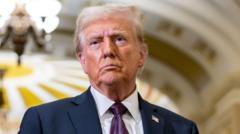
Supreme Court Denies Trump's Last-Ditch Effort to Delay Sentencing in Hush-Money Case
In a significant legal setback for Donald Trump, the Supreme Court has declined his request to delay sentencing in his hush-money criminal case.
The Supreme Court of the United States has dismissed Donald Trump’s urgent appeal to delay his impending sentencing related to a hush-money scandal. This decision, passed by a narrow 5-4 margin, cements the conclusion of multiple failed attempts by the former president's legal team to defer the proceedings linked to payments made to adult film actress Stormy Daniels in 2016. Trump's legal representatives had asserted that he ought to receive an automatic stay, but the justices ruled against this notion.
The core of the accusation against Trump involves falsifying business records to conceal reimbursements for a $130,000 payment classified as legal expenses. Justice Juan Merchan, presiding over the case, previously noted that he is unlikely to impose imprisonment on Trump, a factor that could have influenced the court's decision.
Strikingly, two conservative justices, John Roberts and Amy Coney Barrett, sided with three liberal justices to render the majority verdict, which underscores the evolving dynamics within the Court. Previously dismissing Trump's petitions, three lower courts allowed the sentencing to move forward as scheduled for January 10, which coincidentally falls just ahead of Trump’s anticipated inauguration as president.
The high court justified their refusal by stating that any concerns Trump raised could be adequately addressed in a subsequent appeal process, labeling the burden of attending a sentencing as "insubstantial." In addition, Trump's defense team contended that presidents-elect might have immunity from criminal charges; however, this argument has been met with skepticism.
Prosecutors from Manhattan have ardently opposed Trump's petition, claiming that the case at hand warrants public interest and insists there is no justification for a Supreme Court intervention. Following an earlier guilty verdict, Trump's team had diligently filed a series of appeals aiming to postpone the judicial actions, but to no avail.
In a significant backdrop to this unfolding drama, a coalition of former officials and legal experts presented an amicus brief urging the Court to resist Trump's attempts to evade accountability, particularly as he attempts to leverage past judicial victories relating to presidential immunity.
As the legal landscape continues to evolve, the coming weeks will be crucial as Trump prepares to face sentencing, amidst a charged atmosphere of legal scrutiny and public interest.






